What happened at the 1954 World Cup?
In the weeks leading up to the 2014 World Cup in Brazil, we'll set the scene for the next version of the greatest sporting event in the world by reliving each of its predecessors. We continue the build up today with the first World Cup to be played in Europe after World War II.
Who: 16 squads from Asia (1), Europe (12), North America (1) and South America (2).
What: The fifth World Cup, and the first to be held in Europe after World War II.
Why: Football and trains and chocolate and a relatively unharmed infrastructure.
When: June 16, 1954 to July 4, 1954.
Where: Six cities across Switzerland.
The Final: West Germany 3 - Hungary 2
They called it "Fritz Walter-weather" after the West German captain whose best performances came in the worst of conditions. A driving rain bombarded the pitch through the entire match, but despite — or maybe because of — the weather, West Germany overcame the favored Hungarian side to win its first World Cup.
This was shocking for three reasons: 1) Hungary hadn’t lost in 29 international matches over four years; 2) Hungary had walloped West Germany in the group stage by the score of 8-3; and 3) West Germany didn’t even have a professional league at the time, so most of its squad were technically amateurs.
The match started as most would’ve predicted. Hungary went up 2-0 within eight minutes. However, the German resolve was never in question. The West Germans pulled one back in the 10th minute, and equalized eight minutes after that.
The score remained tied at two with the Hungarians dominating the run of play until six minutes from time, when West German striker Helmut Rahn won the ball inside the Hungarian half, moved up the pitch and scored from the edge of the penalty area. However, it wasn’t over yet. Two minutes before the end, Hungarian captain Ferenc Puskás appeared to equalize, but the linesman ruled him offside. And then, it was over.
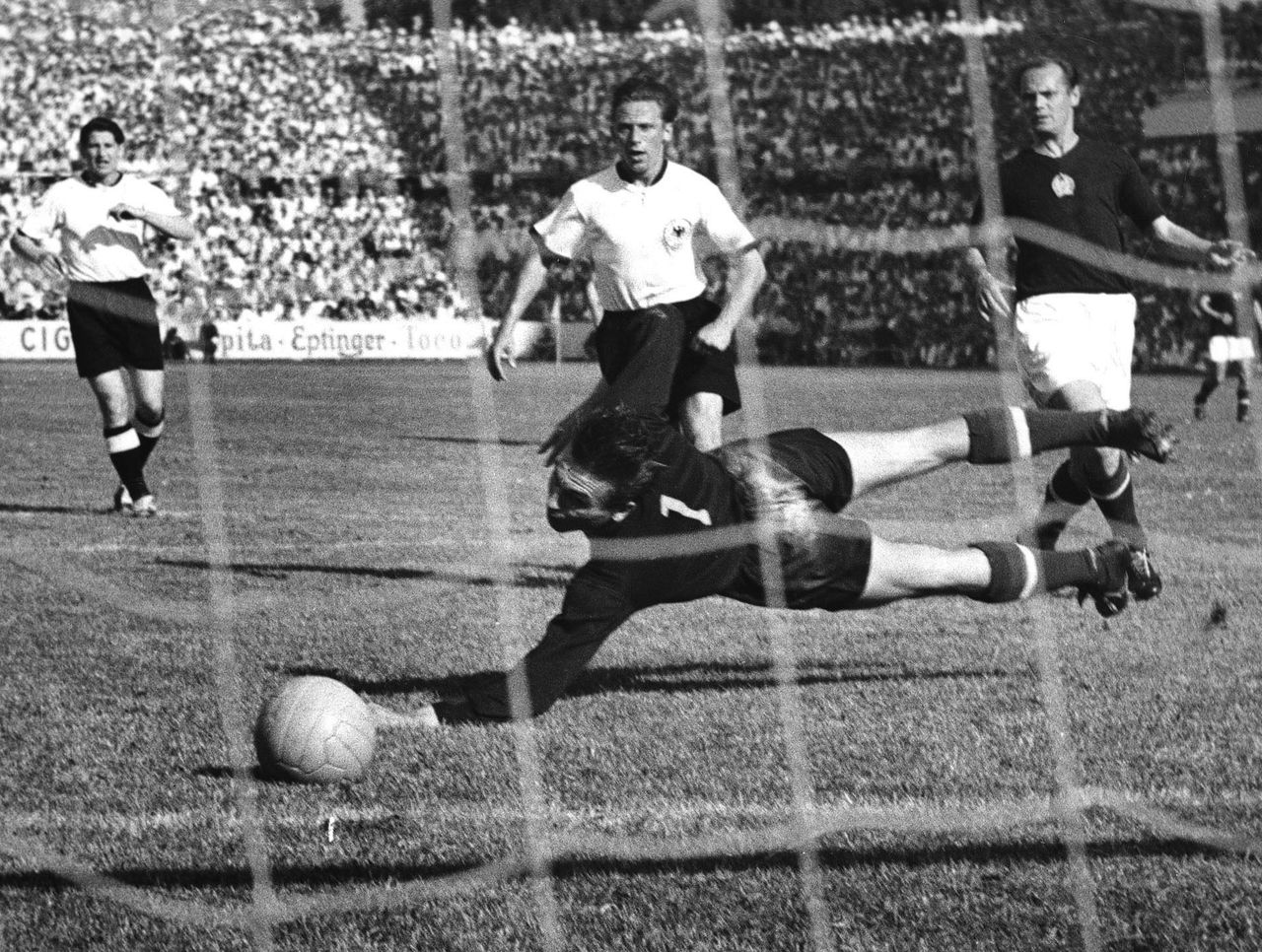
The match. The streak. The domination of Hungarian football. All finished with a shrill whistle blast. The Miracle of Bern.
How Did It Happen?
As far as deciding World Cup hosts go, the 1954 tournament in Switzerland was the least climactic. Eight years before the tournament, FIFA decided that the Swiss would be hosts. While the rest of Europe recovered from the annihilating air attacks of World War II, Switzerland just had to deal with a small number of accidental bombings from Allied forces.
By staying mostly out of World War II, Switzerland was the only European nation capable of hosting when it was being decided. Given eight years notice, planning for the tournament was relatively easy.
Golden Boot
Sándor Kocsis - Hungary (11 goals).
Major Innovations
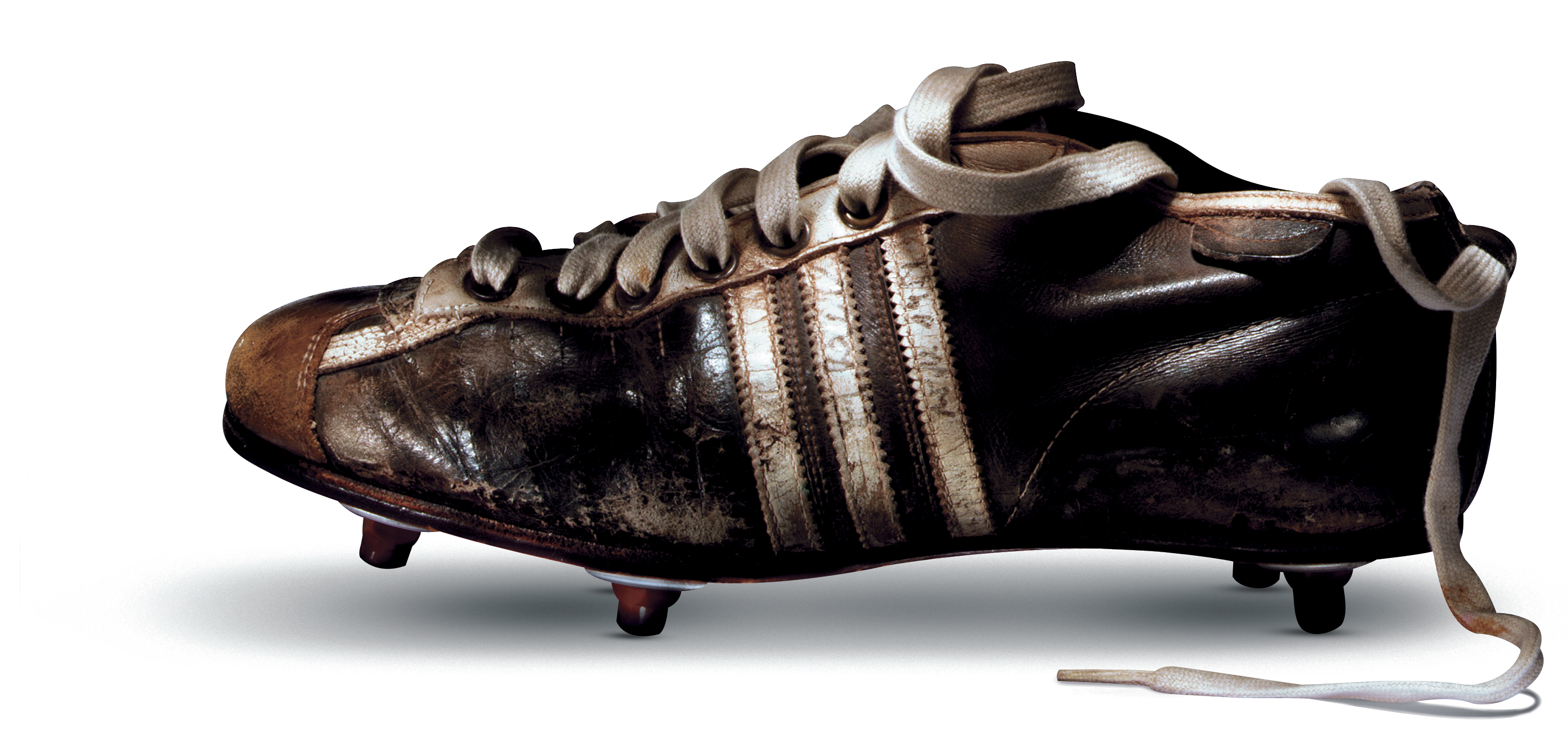
Televised matches;
The adidas boots worn by the West German team had replaceable cleats that screwed in and out of the sole;
In the group stage, all matches level after 90 minutes went to extra-time, if the score was still tied, the match was deemed a draw; and
They finally got a combination of group and knockout stages down pat, as opposed to either/or.
The Format
The field was divided into four groups, with two seeded teams in each. Every nation played two games within the group, with the two seeded teams not playing each other. The top two teams in each group would advance to the quarter-finals. Teams tied on points after two games would play an extra game to decide who progressed. The rest would be a knockout format.
Craziest Match: Hungary 4 - Brazil 2
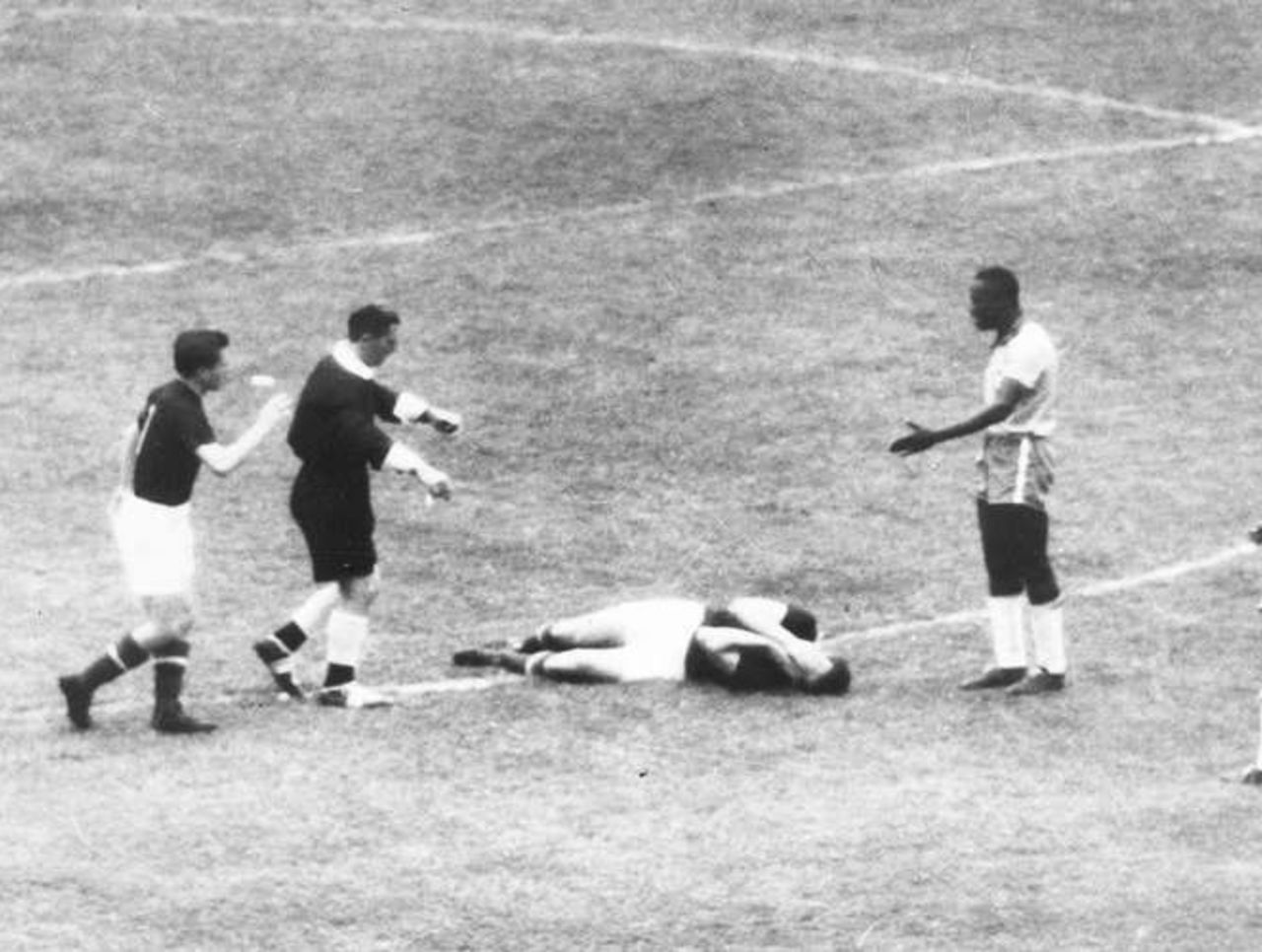
The Battle of Berne actually started as a competitive match between two world powerhouses. Brazil, the disappointed favorites from four years ago, took on the dominating Hungarians, whom most pundits had predicted to win the tournament. After an initial fury from Hungary gave them a 2-0 lead before ten minutes had passed, Brazil got one back on a converted penalty to make the score 2-1 at the half.
The second half began with Hungary earning a penalty of its own on a ball handled in the box by the Brazilian defense. When Mihály Lantos scored to make it 3-1, Brazilian journalists and officials invaded the pitch in protest. After they were finally ushered off, the game restarted with a Brazil goal in the 65th minute.
Five minutes later, a collision between Nilton Santos and Josef Bozsik evolved into a fist fight, with both combatants sent off. Still down by one, Brazil’s sliding, two-footed challenges became almost as desperate as their attempts on goal.
In the 79th minute, Humberto dove with both feet at Gyula Lorant, more than a second after he’d already distributed the ball. The Brazilian forward became the third player sent off, but the threat of red cards did little to dissuade the escalating violence.
Finally, Hungary put the game out of reach with a goal in the 88th minute, but then players, officials, journalists and bystanders flooded the pitch. Fights broke out everywhere, with some Brazilian players invading the Hungarian locker room in search of a brawl.
Despite the craziness — including a post-match bottling incident on Brazilian centre half Pinheiro — FIFA did nothing to punish either side.
Career Move
Arthur Ellis, the English official in charge of the “Battle of Berne,” and a linesman for the 1950 World Cup final, went on to become the referee on the BBC's comedy/game show “It's a Knockout.”
Best Quote
From Ellis, after the infamous Hungary and Brazil match:
I thought it was going to be the greatest game I'd ever see. I was on top of the world. Whether politics and religion had something to do with it I don't know, but they behaved like animals. It was a disgrace. It was a horrible match. In today's climate so many players would have been sent off the game would have been abandoned. My only thought was that I was determined to finish it.
Best Nickname
Hungarian captain Ferenc Puskás was referred to as “The Galloping Major,” after his club team in Hungary became the Hungarian Army team. As a result, football players were given military ranks, and Puskás eventually became a major.
The Controversy
After a slew of recent doping revelations that equated West Germany's systematic use of performance enhancing drugs with East Germany's, it’s been claimed that the West German team used methamphetamines — disguised as “vitamin boosters” — prior to the second half of the final.
First Time Long Time
The tournament marked the first time since World War II that the German national anthem was played at a global sporting event.
Bros Before Woes
West Germany’s Fritz and Ottmar Walter not only became the first brothers to win a World Cup together, they also became the first brothers to score in the same World Cup game when they each netted goals against Austria in the semifinals.
Keepin’ It Close To Home
West Germany's World Cup victory is the only time a team has won without playing any team from outside its own continent.
Craziest Goal
During the England-Uruguay quarterfinal, Obdulio Varela took advantage of a free kick opportunity by dropkicking the ball like an American football punter. His pass went straight to the boot of 1950 World Cup hero Juan Schiaffino who ran past a confused English defence and scored.
The only thing more amazing than the cojones on Varela was that the referee didn’t disallow the goal.
Best Excuse For A 7-0 Loss
After Uruguay blew away Scotland in the group stage by the score of 7-0, future Manchester United manager Tommy Docherty would blame the defeat on the length of the Uruguayan national anthem, suggesting it had exhausted the Scots before the game began.
Lotto 1954
For whatever reason, the draw for the finals took place before qualifying had wrapped up. This meant that Spain had to be replaced as one of the eight seeded teams after they were knocked out by Turkey.
That’s weird enough, but it gets even stranger. After Turkey and Spain split two games, the third match in their qualifying series finished tied at the end of regulation. Instead of playing extra time, a local teenager was blindfolded and drew straws to determine the winner. And you thought penalties were a bad way to determine an outcome.
Best Poster Ever
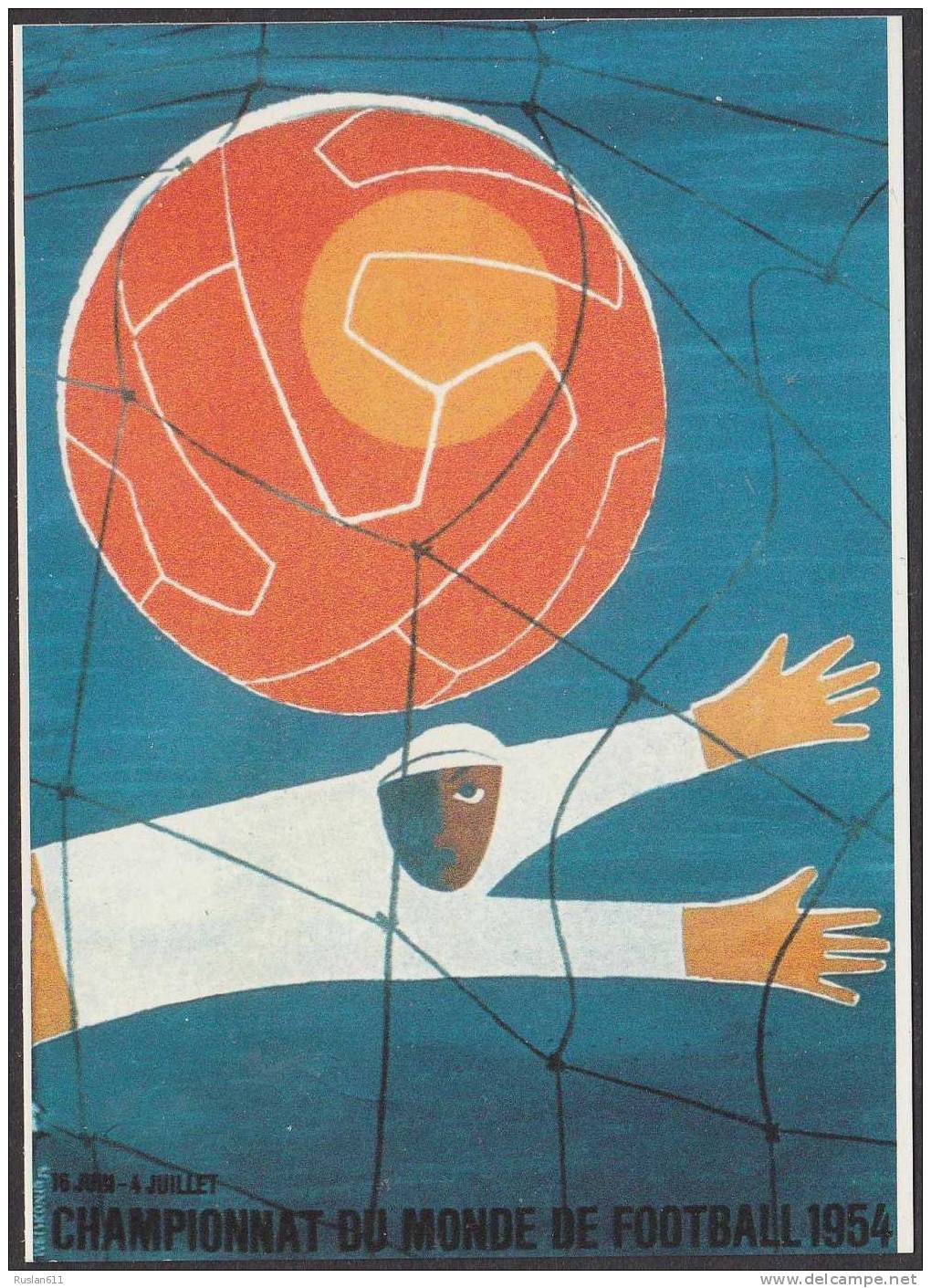
Most Likely To Be Confused For A Sieve
South Korean goalkeeper Hong Duk-Yung somehow managed to concede 16 goals in only two matches.
The Future Turncoats
Uruguay's Jose Santamaria and Hungarian captain Ferenc Puskas (“The Galloping Major”) would both go on to play for Spain at the 1962 World Cup in Chile.
Legacy
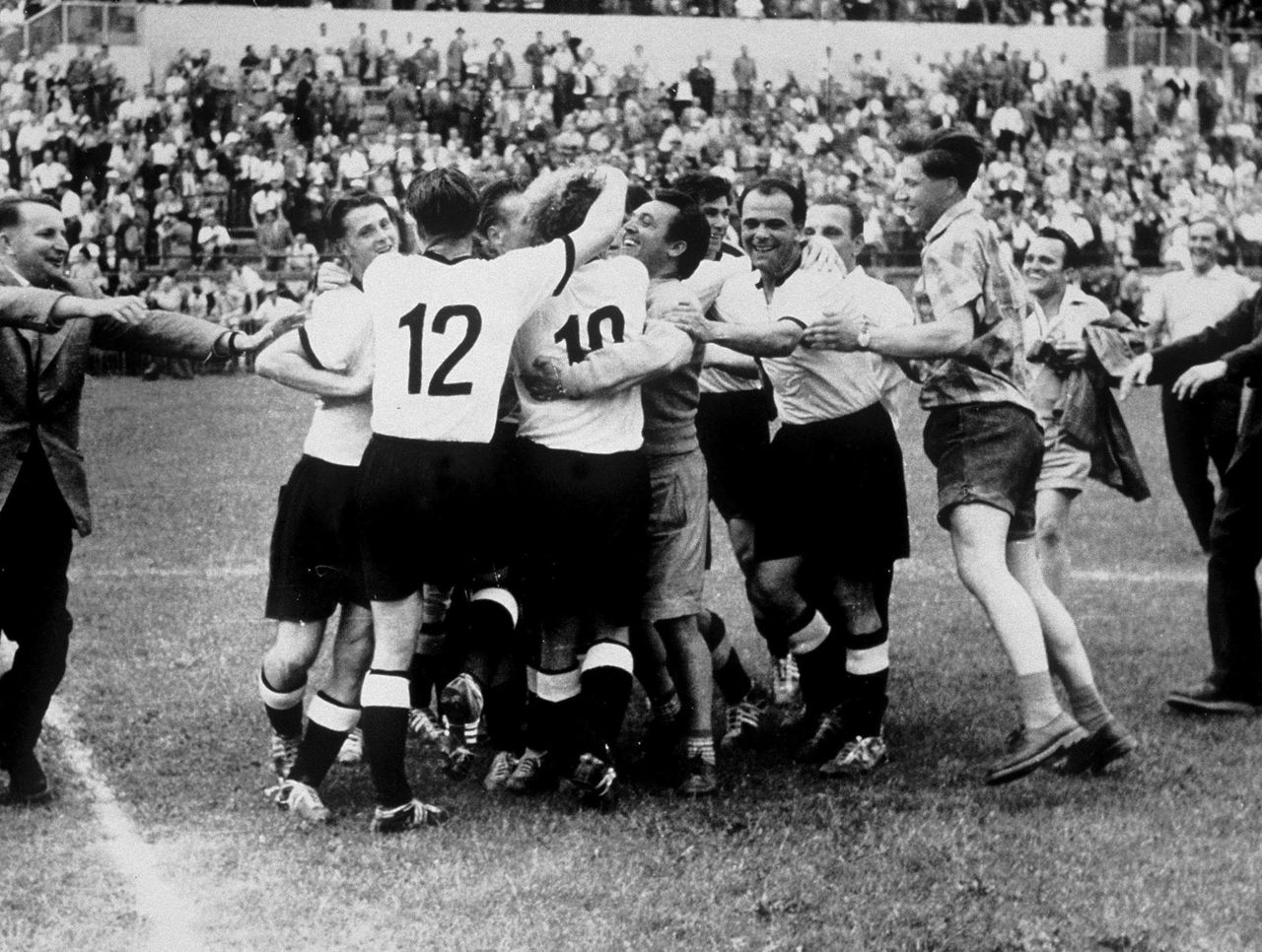
With so many Germans still suffering after World War II, the unexpected win lifted spirits in a way that wasn’t thought possible for the rebuilding nation. Just as four years earlier, a loss had come to inspire the future of Brazil, the significance of West Germany’s victory in 1954 didn’t only affect the future of German football, it had a lasting effect on an entire nation. In the following years, many scholars would point to the West German football team’s World Cup win as a turning point in post-war German history.
HEADLINES
- World Cup Run-Up: Haaland going supernova, USMNT finding groove
- Main Fox network will televise majority of 2026 World Cup matches
- FIFA announces over 1 million tickets sold for 2026 World Cup
- FIFA: U.S. government can decide if World Cup cities are fit to host games
- 2026 World Cup tracker: Who's qualified, how many spots are left?